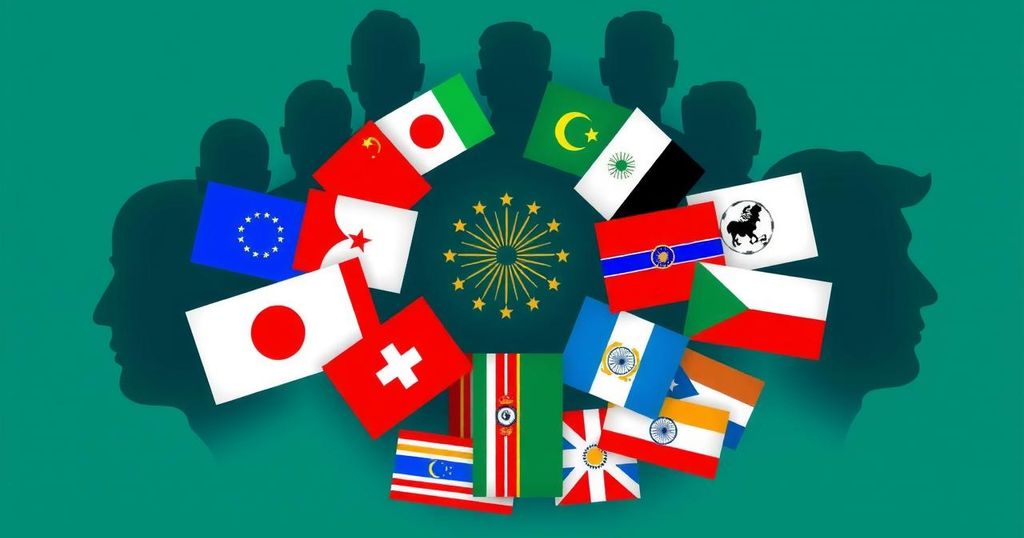Xi Jinping’s Surprise No-Show at BRICS Summit Fuels Speculation on China’s Role

- Xi Jinping will miss the BRICS Summit for the first time.
- The official reason given is a scheduling conflict, which many are doubting.
- Experts suggest that Xi’s absence reveals internal unrest in China.
- Rising tensions between China and India may have influenced Xi’s decision.
- BRICS remains large but fragmented, complicating its global role.
- China’s trade practices may harm the relationship with other BRICS members.
- The potential for a BRICS currency threatens the U.S. dollar, though caution is advised.
Xi Jinping’s Absence Raises Questions About Internal Politics
Xi Jinping’s decision to not attend the BRICS Summit in Brazil this week has raised eyebrows and stirred quite a bit of chatter among analysts. Typically, this summit serves as a major gathering for emerging economies, and Xi’s absence—his first in the summit’s history—has led many to wonder about the implications for China’s standing within this influential group. Some experts believe there is more than meets the eye behind Beijing’s official word of a ‘scheduling conflict,’ pointing out that Premier Li Qiang will represent China instead. This move comes at a time when Xi seems to be stepping back more from the global stage, which some are interpreting as a sign of potential instability at home.
China’s Internal Friction Impacting Global Relations
The skepticism surrounding Xi’s absence grew quickly. Gordon Chang, a renowned expert on U.S.-China relations, stated, “That doesn’t make sense,” emphasizing the importance of Xi’s role amid the diverse nations present at the summit. Such a decision could point to chaotic dynamics within China, as Chang mentioned signs that show Xi may be losing grip over the military while facing challenges from within his civilian ranks. Bryan Burack of the Heritage Foundation added a layer of complexity, noting that rising tensions between China and India, particularly regarding their ongoing disputes, might have influenced Xi’s choice to stay home. If Prime Minister Narendra Modi seizes this summit to assert India’s leadership, Xi’s absence might be interpreted as strategic avoidance.
BRICS: A Powerful Yet Fragmented Alliance
BRICS, originally founded as a counterbalance to Western powers, has morphed into something much larger and complex over the years, now boasting a membership that spans various continents and includes nations like Egypt and Indonesia. While the group collectively controls a hefty 60% of global GDP and a significant slice of the world’s population, its ideological dissonance is palpable. Economists like Christian Briggs have pointed out that despite its vast reach—encompassing 12 full members—BRICS faces challenges to unite, especially as China continues to engage in practices detrimental to other member nations. As Burack put it quite bluntly, “It’s a group of countries that hate each other,” which complicates its ability to act cohesively on the global stage.
Balancing Act: BRICS and Global Currency Dynamics
As the discussions surrounding BRICS currencies gain traction, many experts express caution regarding the potential threat to the U.S. dollar. Some argue that the notion of a unifying BRICS currency is overstated, suggesting variations in national interests dilute any cohesive economic strategy. However, there are movements within BRICS—shifting toward currencies like the yuan and rupee—that could signify an ongoing change in global financial systems, according to Briggs. Even as China and Russia attempt to lessen reliance on the dollar, one prevailing issue is India’s role as a countermeasure against solidifying any overtly anti-Western sentiment within BRICS. Chang posited, “As long as India’s in BRICS, the rest of the world is safe.”
Contradictions and the Future of BRICS
The impact of Xi’s decision to skip the summit isn’t entirely settled; interpretations vary widely among analysts and observers. For some, his absence signals fragility in Beijing’s current situation, potentially hinting at fissures within the once-ironclad control of the Communist Party. Conversely, others posit that Xi’s choice to delegate responsibilities indicates a confident posture regarding China’s prowess in the BRICS arena. As Briggs noted, in practical terms, China is still forging ahead whether or not their leader is present. What these varying perspectives expose is the evolving and often contradictory nature of BRICS, as its ambitious geopolitical goals clash with internal fractures that could undermine collective effectiveness in the long run.
Xi Jinping’s absence from the BRICS Summit shines a spotlight on multiple, intertwined issues, from strange internal politics in China to the complex dynamics within the BRICS itself. While experts debate the implications of this move—ranging from a sign of instability to confident leadership—it is evident that the group’s cohesiveness is facing significant challenges. Ultimately, this evolving spectacle raises key questions about both China’s role in global affairs and the future of BRICS.








